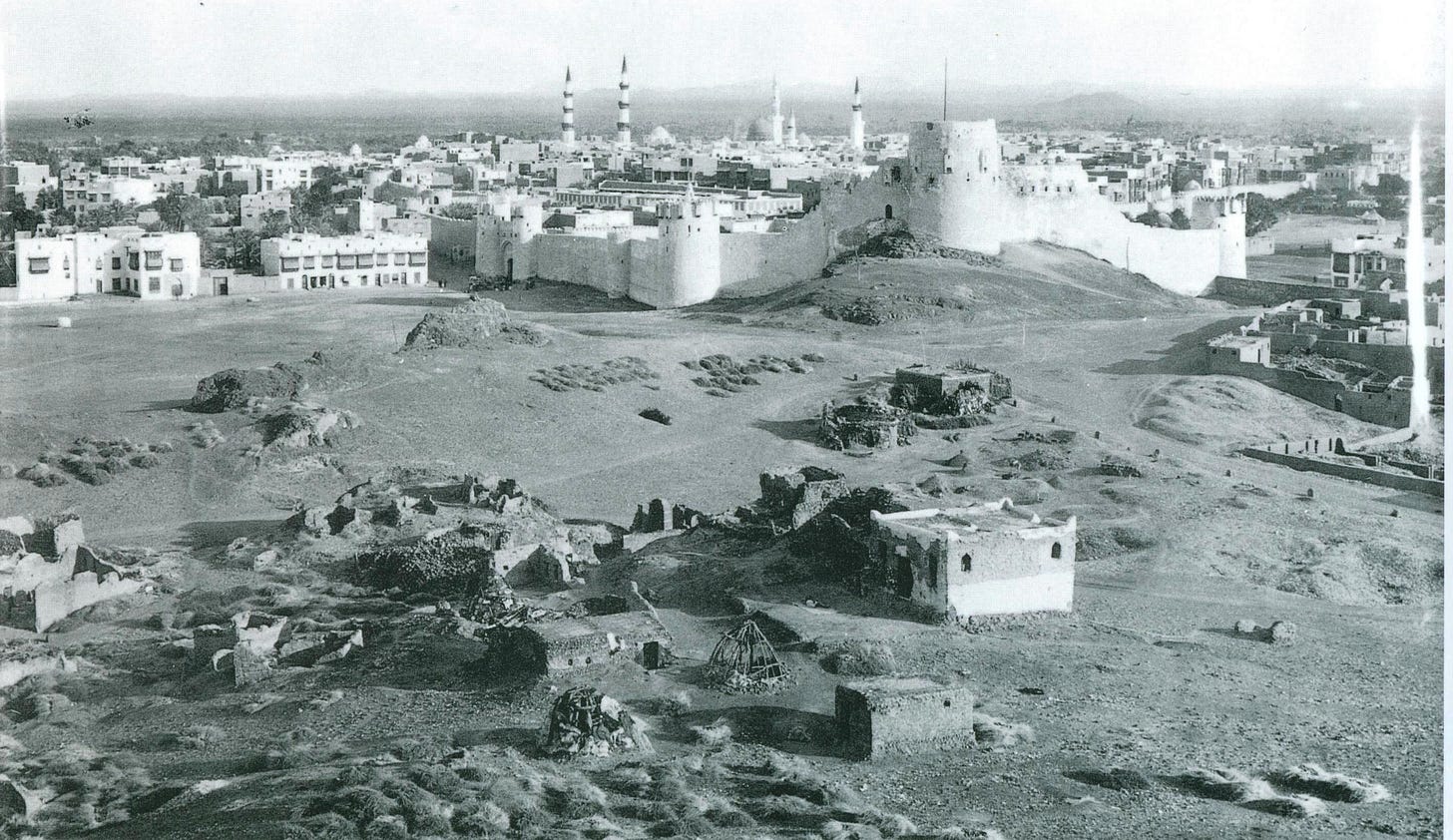The Madinan Era: Governance, Conflict, and Peace in Early Islam
The History of Muslims - 03/30
[View Table of Contents to see other lessons]
Abstract
This paper will delve into the crucial period of the Madinan Era in Islamic history, exploring the formation of the first Islamic government, the war between Makkah and Madinah, and the relations with the Jews and the Hypocrites. It will also analyze the Treaty of Hudeibiyah, the significance of Umrah and Dawah, and the subsequent conquest of Makkah. In addition, it will reflect on the valuable lessons that can be gleaned from this phase of history.
Introduction
The Madinan era marks a pivotal chapter in Islamic history, witnessing the emergence of the first Islamic government and the unfolding of significant political and military events. These developments provide insights into the nature of early Islamic governance and the strategies employed to navigate conflict and promote peace.
The First Islamic Government and the Madinan Charter
The Madinan Charter serves as a significant document in the annals of early Islamic governance, offering principles of tolerance, freedom of religion, and a flexible framework for political administration. Despite the subsequent abrogation by the laws of Jizyah as articulated in Surah al-Tawba, the Charter represents an important benchmark in the history of Islamic governance, a field that remains understudied in contemporary times.

Wars and Diplomacy
The war between Makkah and Madinah, encompassing the pivotal battles of Badr, Uhud, and Khandaq, and the interactions with the Jews and Hypocrites, offer profound insights into the Prophet's ﷺ approach to warfare and diplomacy. The Prophet ﷺ did not shy away from war when necessary but always preferred peace, employing a method of Jihad that aimed to minimize casualties. Notably, these military engagements represented a necessity for survival in the medieval world, rather than an inherent inclination for conflict.
The Treaty of Hudaybiyah
The Treaty of Hudaybiyah exemplifies the prioritization of peace in the Prophet's ﷺ strategic vision. It highlights that Dawah spread more effectively during periods of peace and that sometimes, to achieve peace, one might need to compromise individual rights. The Treaty was instrumental in opening the doors to the conquest of Makkah and catalyzing significant conversions.
Conclusion
The Madinan era provides an invaluable window into the evolution of Islamic governance, strategies of conflict resolution, and the pursuit of peace in early Islam. As such, studying this era equips us with nuanced understanding and lessons that remain pertinent in the contemporary discourse on Islamic history and thought. The evidence from this period underscores that the overarching objective of the Islamic philosophy was, and remains, the establishment of peace and the elimination of harm.
Keep reading with a 7-day free trial
Subscribe to UmmahArchive.org to keep reading this post and get 7 days of free access to the full post archives.



